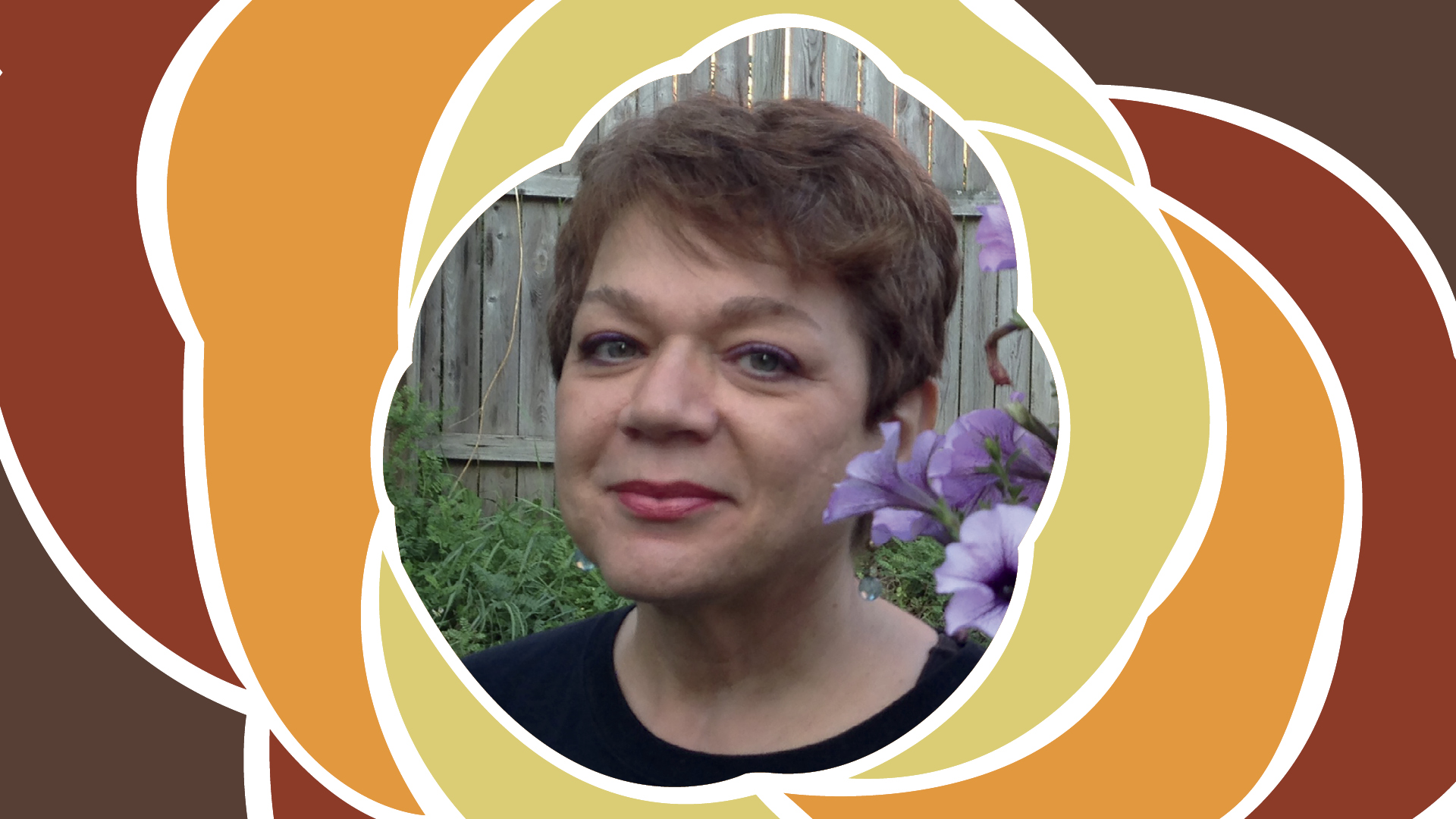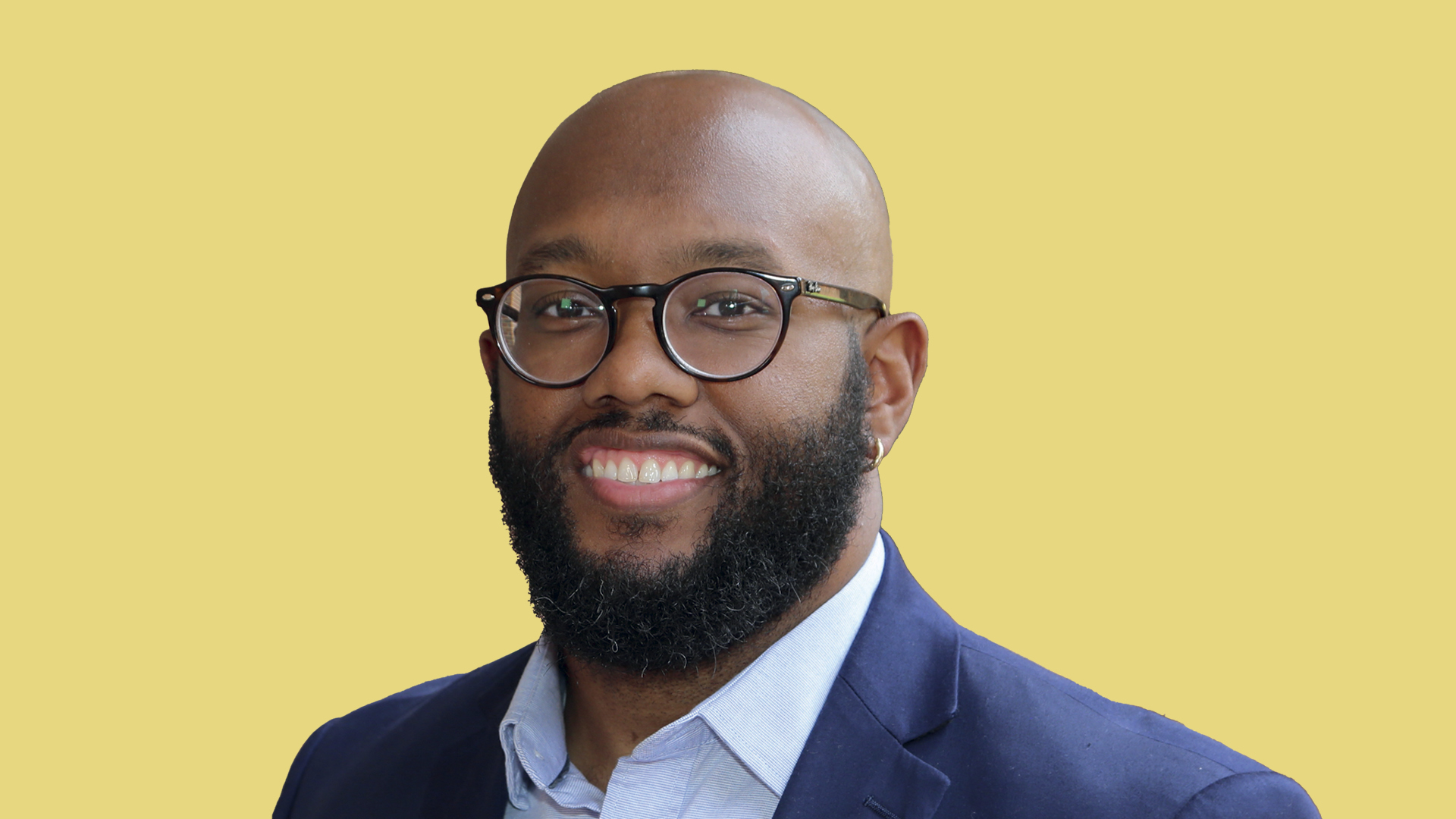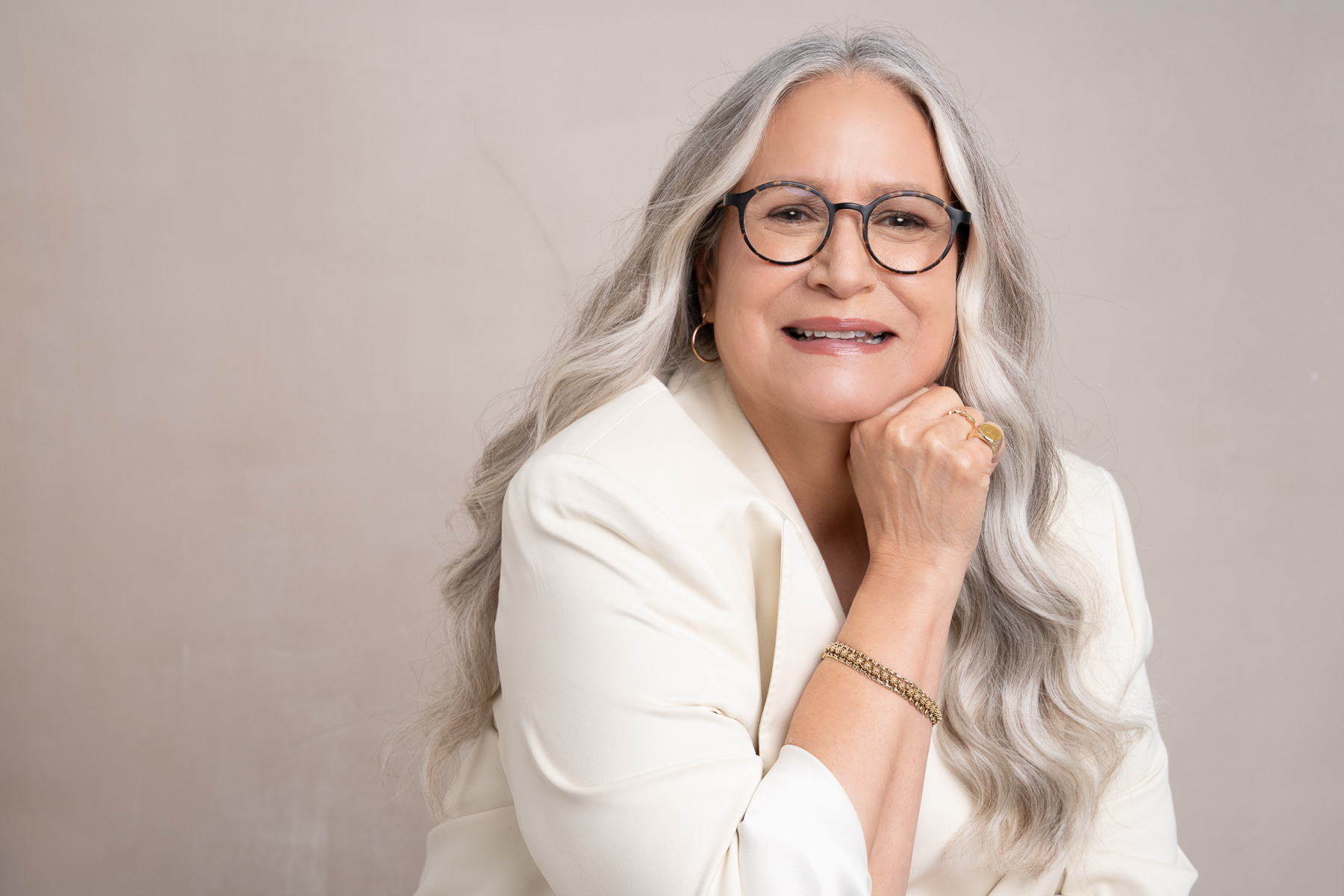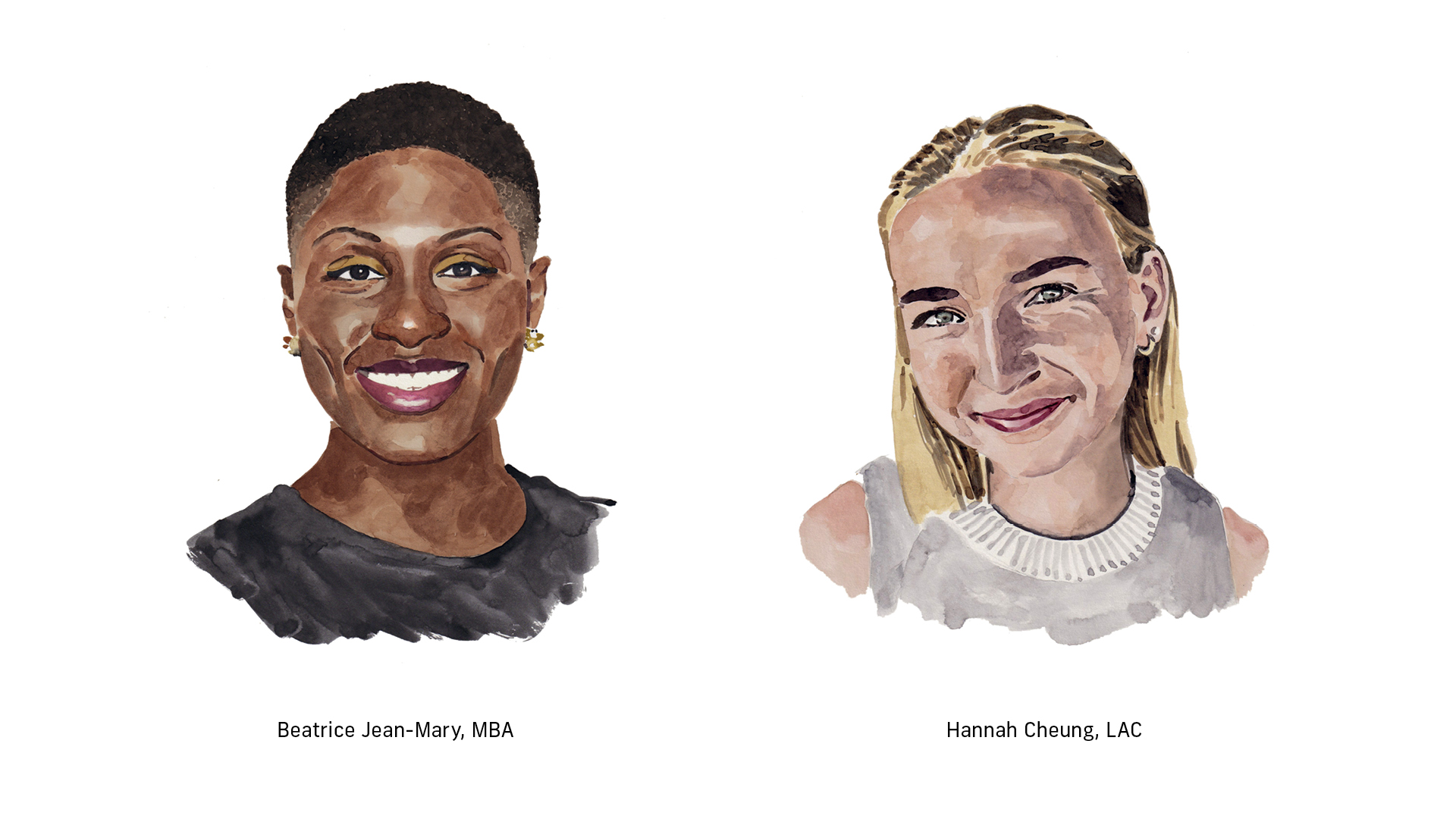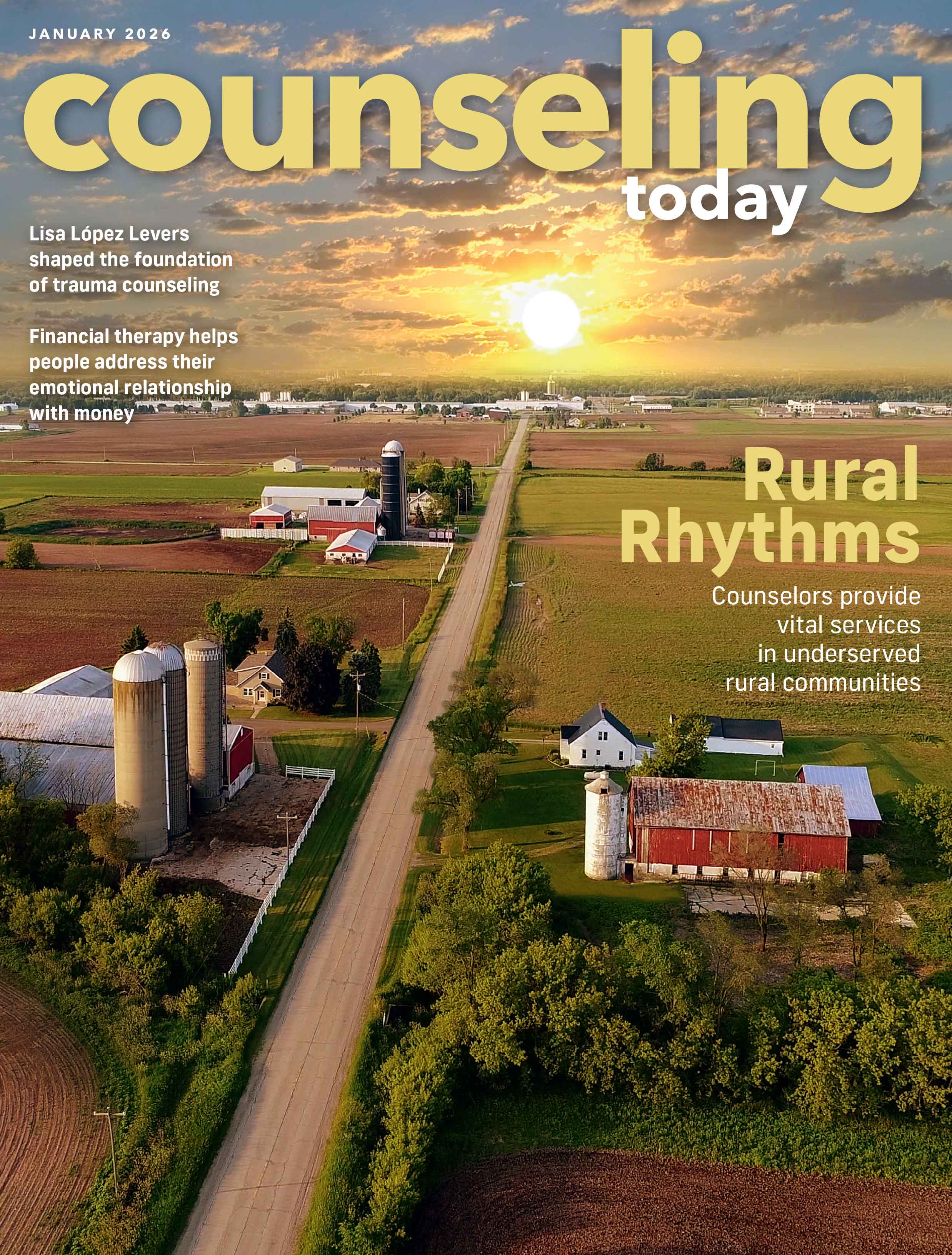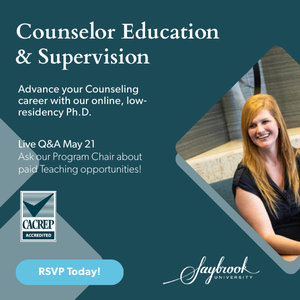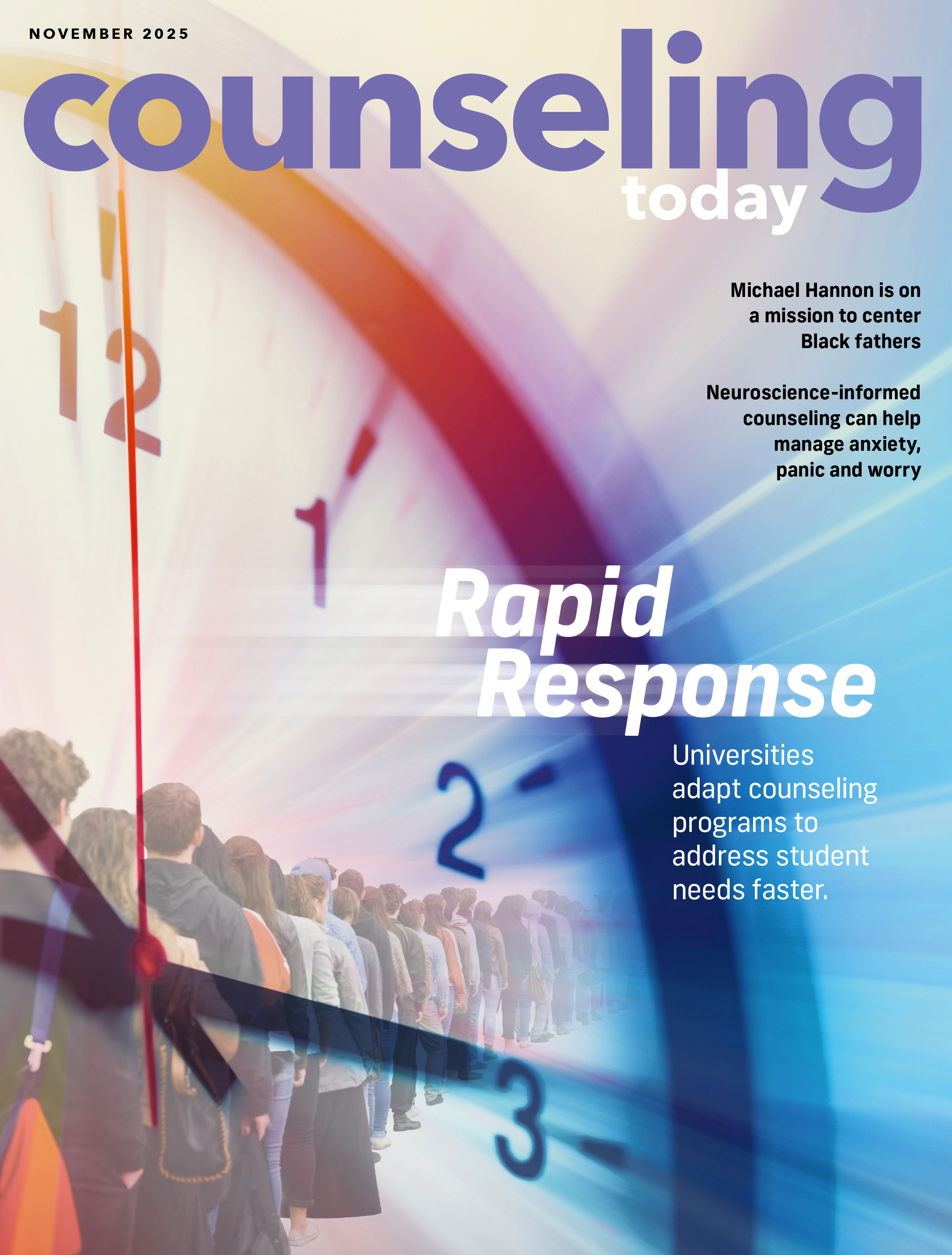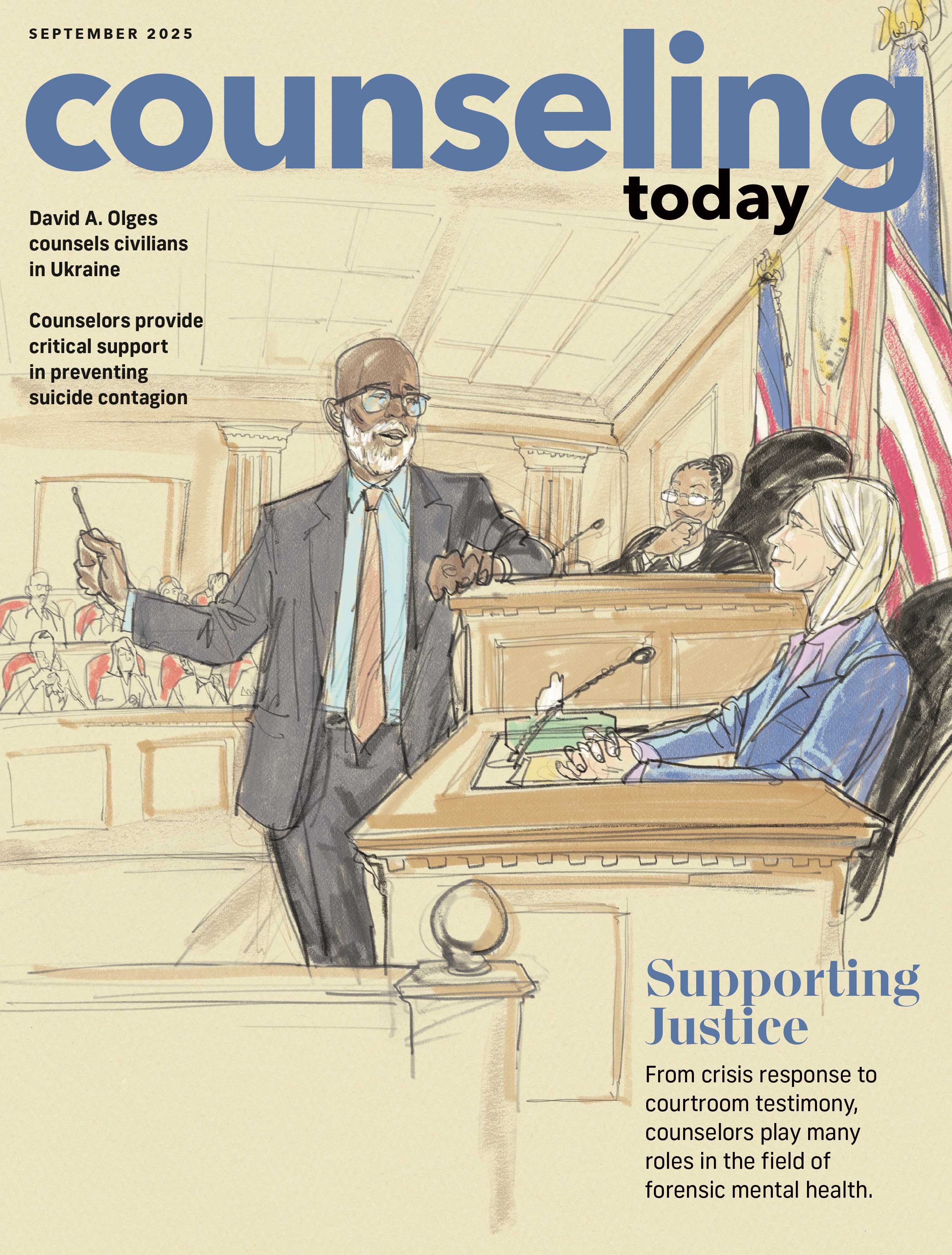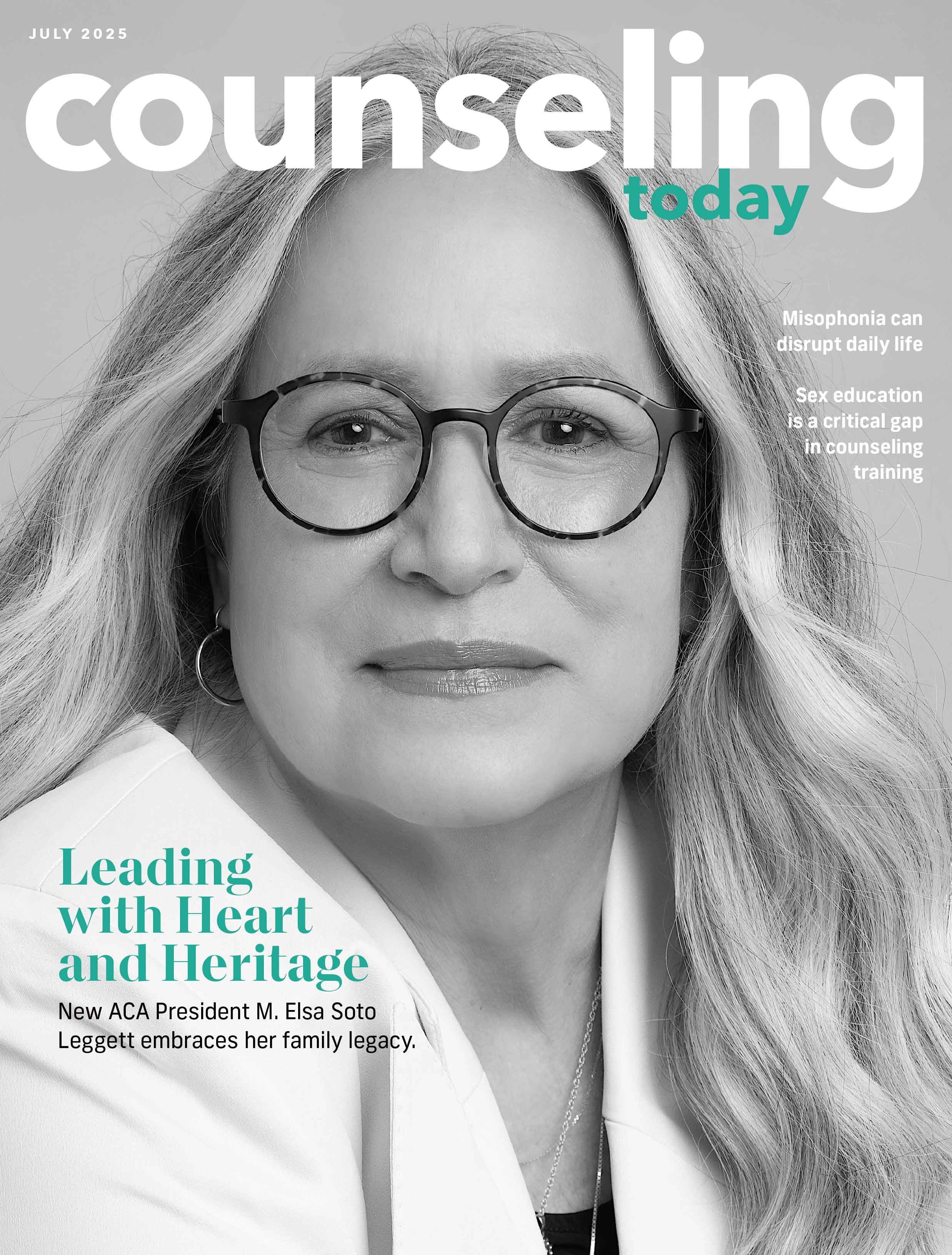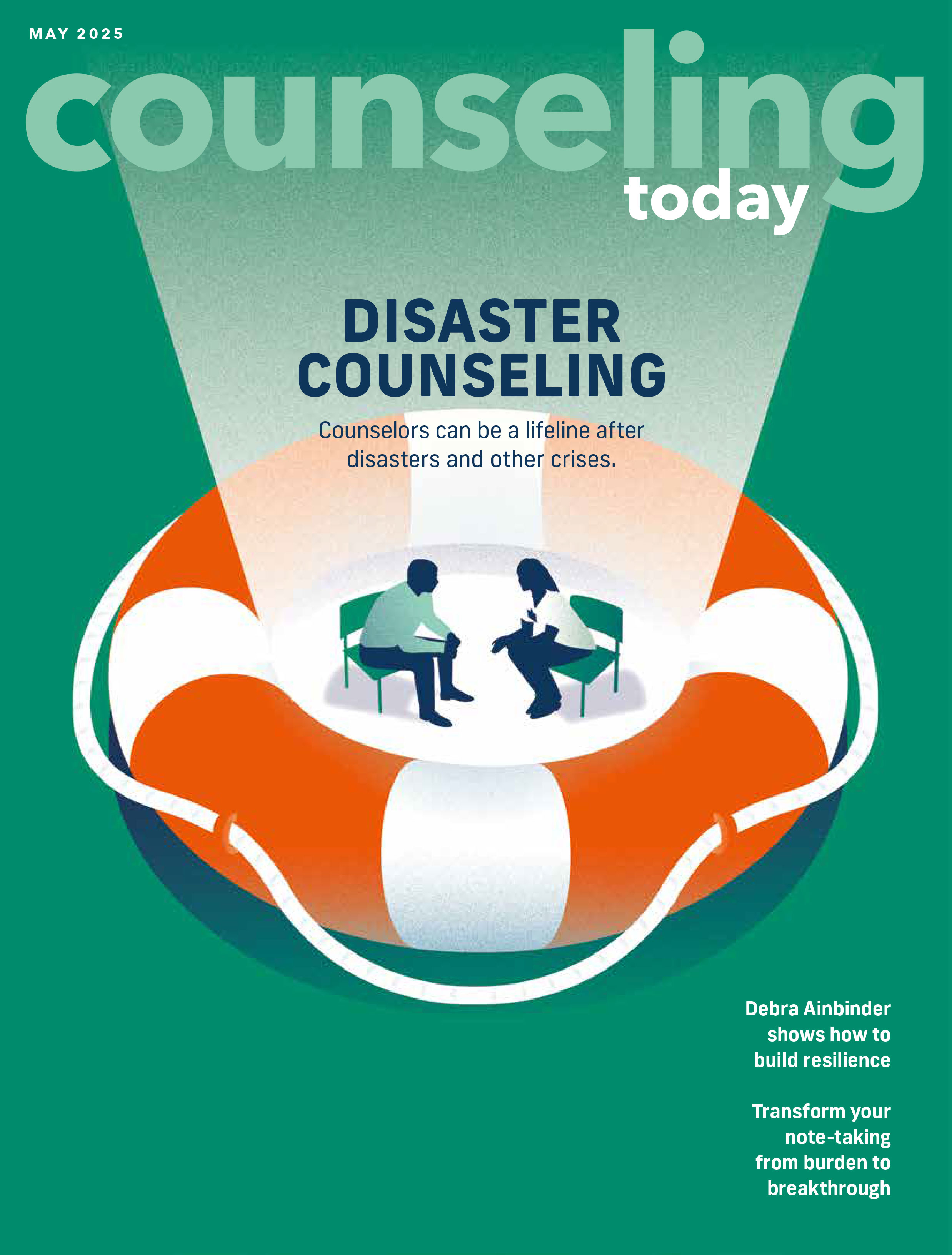
Rural Rhythms
Counselors provide vital services in underserved rural communities.
Counseling Today Member Blog
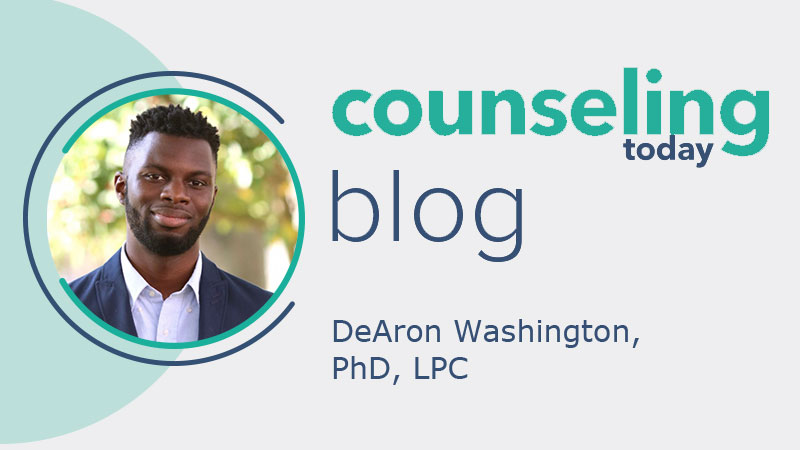 By DeAron Washington, PhD, LPC
By DeAron Washington, PhD, LPC
“This was the worst class I have taken so far, and I don’t see how it fits into the counseling program.”
These were the words of a disgruntled student after taking my “Introduction to Marriage and Family” course. Once I warded off the unwelcome whispers of imposter syndrome and resisted the temptation to belittle the student, I took a moment to confess that my teaching was imperfect and wondered if the student had considered the potency of couples and family therapy. Maybe couples therapy was not out of the realm of possibility for them.
I love couples therapy. As I teach my students, I encourage them to consider the possibility of being a couples therapist. As I preach the good news of couples counseling, I encounter several “what if” statements from students such as “what if they fight in my office,” “what if there is a secret affair” and “what if they get a divorce.”
I attempt to respond to each statement; however, what lies below each statement is fear. Students have good reasons for their fear. They have a strong desire to “get it right” — an honorable desire in a helping profession. After addressing the fear of the worst-case scenarios, I invite them, and I now invite you, to consider the transformation possible through couples therapy.
Rebuilding Systems
Scenes from reality shows such as Married at First Sight and Love Is Blind are frequent visitors in my classes. After students watch clips from these shows in my courses, the fear and anxiety in the room are as thick as cold peanut butter. After hearing several statements that exude hopelessness for the couple, I offer insights to express the couple is not hopeless, but helpless. They need help reinterpreting their interactional patterns and attempting new responses. In client sessions, I have seen couples spew grating comments at each other and engage in a game of verbal battleship until one person sinks. However, I have seen those same couples make progress and change their relational pattern. They traded harsh comments for tender moments of connection.
Support systems are a major part of treatment plans for most clients. Couples therapy provides the ability to cultivate safety and build healthy support systems in 50-minute segments. It provides the ability to rebuild a bond that will impact couples’ kids, grandchildren and communities.
What’s Love Got to Do with It?
Counselors hear devastating stories. We hear about children who were exposed to the evils of this world and taken advantage of by those who were supposed to protect them. Our clients tell us about the constant oppression and microaggressions they face. We’ve heard of stories of war, poverty, substance abuse and other unfortunate circumstances.
It is tempting to give into cynicism and let such tales of suffering suffocate our hope for humanity. Yet couples therapy can keep hope alive.
When I see a spouse wage war against their negative personal narratives to give their partner empathy, I’m reminded people will also fight for each other. For example, the moment one partner can give the hard-earned gift of forgiveness after an affair is a sign that humans can overcome. Those sessions when one partner comforts the other after sharing a part of themselves buried for years are indications that people can show up for others. Couples therapy reminds us love is a valuable weapon to fight against obstacles that would tear people apart.
Meeting the Challenge
Couples therapy can be hard and scary. Some sessions have activated my fight or flight response. I have had moments where I felt ineffective and desperately wanted to get it right. Sometimes couples therapy seems like so much more labor than individual therapy.
However, if you are up to being brave, rebuilding systems and being reminded of the power of love, I invite you to explore couples therapy in the following ways:
- Seek training in models such as emotionally focused couples therapy, Gottman Method Couples Therapy, cognitive behavioral therapy for couples or other evidence-based models.
- Consult with a marriage and family therapist while and after pursuing training. Counseling is best learned in community with others. Early in my career, I attempted to learn emotionally focused therapy alone, which was a major error. Once I started learning it with a community, the model made more sense.
Couples therapy is a valuable mode of therapy, and more therapists should be trained in relational models. I will continue to tell the good news of couples therapy, and I invite you to try and see that it is good.
DeAron Washington, PhD, LPC, is an assistant professor of counseling at Belhaven University with a doctorate in counselor education and supervision. His research interests include cultural humility, supervision and emotionally focused couples therapy. Learn more.
Note: Opinions expressed and statements made in this blog do not necessarily represent the policies or opinions of ACA and its editors.
Online Exclusives
-
 Grand Prize Essay Explores Responsibility in Artificial IntelligenceDecember 2025
Grand Prize Essay Explores Responsibility in Artificial IntelligenceDecember 2025The Tomorrow’s Counselors Essay Competition recognizes graduate counseling students with exceptional insight and understanding about the counseling profession.
-
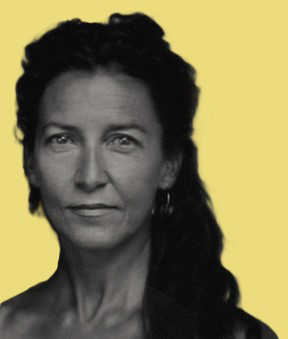 Grand Prize Essay Discusses Mental Health Challenges Among StudentsDecember 2025
Grand Prize Essay Discusses Mental Health Challenges Among StudentsDecember 2025The ACA Future School Counselors Essay Competition, part of the annual ACA Awards, recognizes graduate counseling students with exceptional insight and understanding about the school counseling profession.
Tags: -
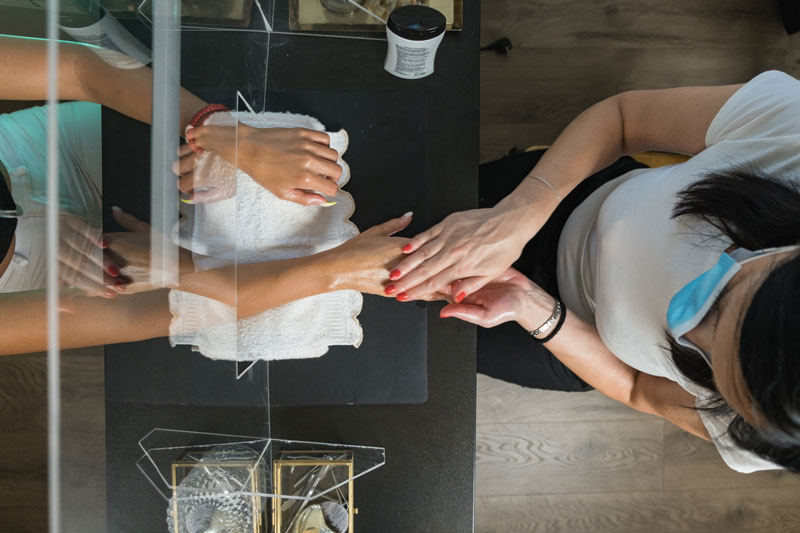 The Myths (and Truths) of Human TraffickingJuly 2025 |By Samantha Cooper, Staff Writer
The Myths (and Truths) of Human TraffickingJuly 2025 |By Samantha Cooper, Staff WriterUnderstanding the reality of human trafficking makes it easier to help the victims.
Search CT Articles
Current Issue
Sign Up for Updates
Keep up to date on the latest in counseling practice. Sign up to receive email updates from Counseling Today.
CT on YouTube
Download Recent Issues
ACA members receive access to past full issues of Counseling Today. Log in to download copies from the archive.

